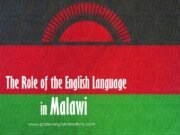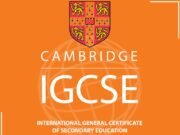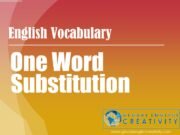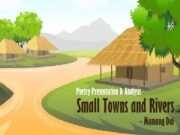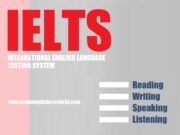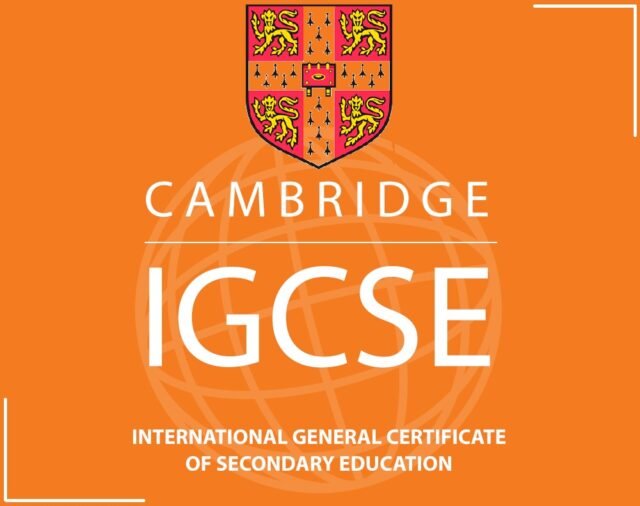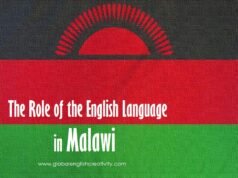IGCSE: International General Certificate of Secondary Education
The International General Certificate of Secondary Education is a two-year program for students of Grades IX and X (14 to 16-year olds). It is an international curriculum, aligned to the standards of GCSE followed in the United Kingdom. The program is offered at a global level by Cambridge Assessment International Education, a part of the University of Cambridge.

Cambridge IGCSE is the world’s most popular international qualification for 14 to 16 year olds, attracting over 800000 subject entries every year from 150 countries, ending in a Cambridge IGCSE certificate. It is an English language based examination similar to the GCSE and is recognised in the United Kingdom as being equivalent to the GCSE for the purposes of recognising prior attainment. It was developed by Cambridge Assessment International Education.
The examination boards Edexcel, Learning Resource Network (LRN), and Oxford AQA also offer their own versions of International GCSEs. Students normally begin studying the syllabus at the beginning of Year 10 and take the test at the end of Year 11. However, in some international schools, students can begin studying the syllabus at the beginning of Year 9 and take the test at the end of Year 10.
The qualifications are based on individual subjects of study, which means that one receives an ‘IGCSE’ qualification for each subject one takes. Typical ‘core’ subjects for IGCSE candidates include a First Language, Second Language, Mathematics and one or more subjects in the Sciences.
Benefits of IGCSE curriculum:
- Highly student-centric
- Prepares students as global citizens
- Helps students to become independent and innovative learners
- Develops a passion for lifelong learning
- Values student’s engagement in research work, research methods and ethics
- Prepares students for admission to international universities in a better manner than other curriculums
- IGCSE programs are more practical and application-based
- The designers of the IGCSE curriculum and the assessment in Cambridge have been determined to create a framework which supports both the teachers and the learners
- IGCSE Curriculum is flexible and easy to adapt
- The curriculum is designed in such a way that it encourages students to come up with new ideas and resources
- The teachers will only provide the foundation of the syllabus while students are expected to analyze the subject matter to develop a better understanding of the same
- Students are taught to become independent with minimal supervision
- IGCSE curriculum is ideal for students who plan to relocate and pursue higher studies in foreign countries
- The assessment techniques check the problem-solving skills, time-management skills, practical and oral skills, initiative and application of skills, knowledge and understanding
- The curriculum gives an international perspective to studies and it is compelling as well
- IGCSE curriculum is of application-oriented learning
 IGCSE: Educational Resources for Schools
IGCSE: Educational Resources for Schools
IGCSE: Digital Learning
IGCSE: Professional Development
“The Cambridge International General Certificate of Secondary Education (IGCSE) is a two-year educational programme that is offered for students between 14 and 16 years old. The IGCSE qualification is recognized worldwide and serves as an ideal preparation for further studies and international qualifications.
Furthermore, the International General Certificate of Secondary Education is the world’s most popular international qualification for young students. Not only is it truly international – it gives students more options than any other international qualification, allowing students more ways to learn and succeed. IGCSE is the registered trademark of Cambridge Assessment International Education.“
also see:
| USEFUL EXPRESSIONS IN ENGLISH SPEAKING |
| DAILY ENGLISH GRAMMAR WORKSHEETS |
| ENGLISH GRAMMAR_1 |
| ENGLISH GRAMMAR_2 |
| PHONETICS |
| MORPHOLOGY: WORD-FORMATION |
| FIGURES OF SPEECH |
| TONGUE TWISTERS |



